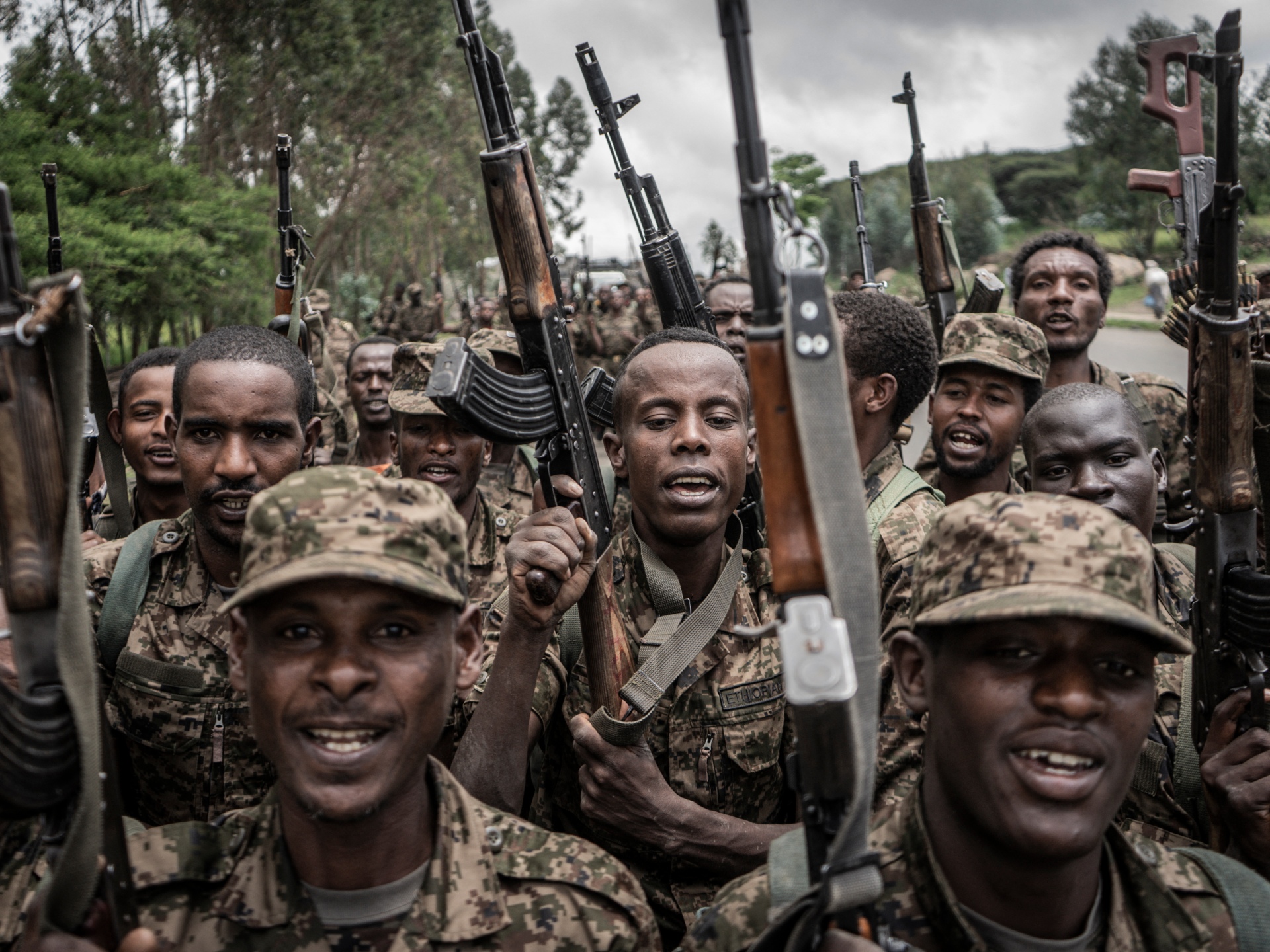EXPLAINER
The Ethiopian government and Tigrayan rebels blame each other for restarting the war which was ignited in November 2020.
Fighting has erupted again around the borders of Ethiopia’s northern Tigray region, shattering a ceasefire declared in March.
Both sides blame each other for restarting the war, which was ignited in November 2020 when Tigrayan forces seized military bases across their region.
The Tigray People’s Liberation Front (TPLF), the party that controls Tigray, dominated the government for nearly three decades until Prime Minister Abiy Ahmed was appointed in 2018. The TPLF accuses Abiy of centralising power at the expense of the regions, an accusation he denies.
What happened to peace talks?
- Foreign countries have backed peace talks led by African Union envoy Olusegun Obasanjo.
- Both sides announced in June that they had appointed representatives for talks. The TPLF said there were two meetings abroad, an assertion not confirmed by the government which did not respond to requests for comment. The renewed fighting may have ended those hopes.
What happened during the ceasefire?
- After fighting to a bloody impasse – with thousands dead, infrastructure smashed and tens of thousands uprooted from their homes – it appears both sides used the lull to reorganise.
- Reports emerged from Tigray of forced recruitment, with parents or spouses imprisoned if civilians did not join up.
- Residents around the areas where fighting erupted also reported increased movements of government troops and militia in the days before the clashes. The Ethiopian military promised legal action against anyone reporting “inappropriate information or rumours”.
What were the problems?
- The TPLF wanted basic civilian services restored to Tigray before serious peace talks began – a request supported by the United States and European envoys. Tigray has been without banking and telephone links since Ethiopian and Eritrean soldiers pulled out of most of Tigray more than a year ago.
- The ceasefire allowed large-scale convoys to enter Tigray again this April. Only a tiny trickle of aid had been allowed in since mid-2021, creating what the United Nations called a de facto blockade. The government denied blocking aid.
- But even after April, aid workers struggled to distribute food because they were only able to bring in less than a fifth of the fuel they needed. Medicine is also in short supply. Malnutrition is rising, with those in “severe” need up from 37 percent of the population in January to 47 percent in August.
What happens next?
- There is fighting to the south of Tigray between the Ethiopian military, allied forces from the Amhara region and the TPLF. The government has also carried out air attacks in the Tigrayan capital, Mekelle.
- Fighting has also erupted in the west, in a contested area claimed by both Tigray and Amhara.
- There have also been reports of shelling coming across the border from Eritrea to the north. Eritrean troops previously fought alongside Ethiopian soldiers against the TPLF.
- The TPLF has said it expects a major push from the west. The government is keen to keep control of the contested area partly because it blocks the TPLF’s access to Sudan, which the group could potentially use as a resupply route for weapons or recruits. Currently, the area held by Tigrayan forces is surrounded on all sides by forces they are fighting.
